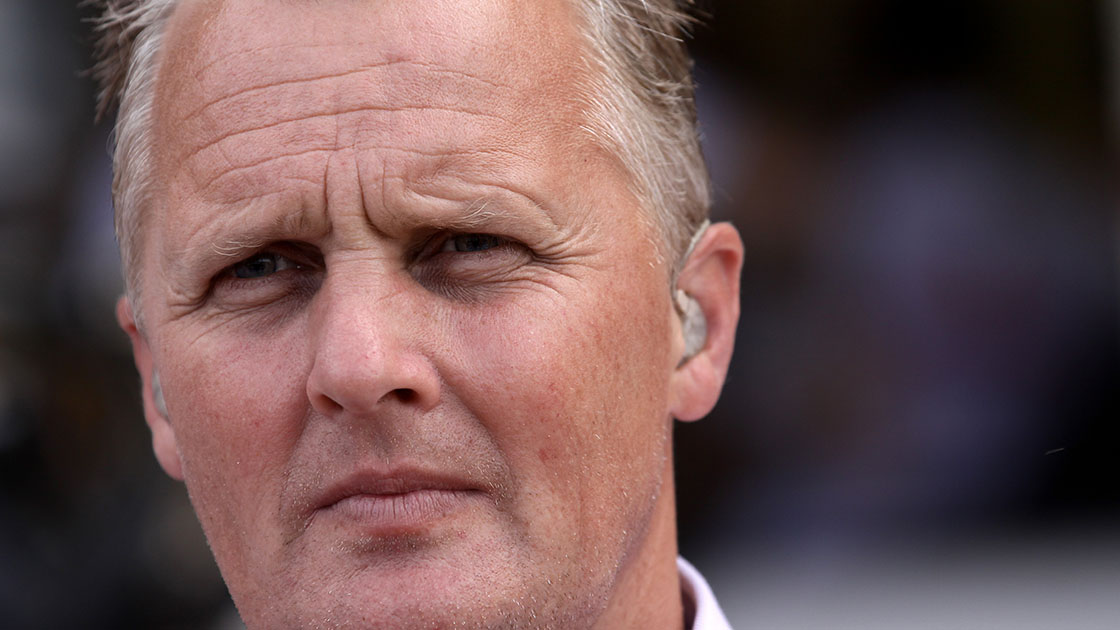Johnny Herbert: 'New breed of F1 bosses are middle men — do they have the edge to win?'
"The role of a team principal has changed. Their job is to promote the brand in a positive way"

Grand Prix Photo
The changes in Formula 1 team principals over the winter have been a little too much like the world of hiring and firing football managers. Team principals have changed since the days when I was racing. Look at who I drove for and who was around the scene back then: I had Peter Collins, Flavio Briatore, Peter Sauber and Sir Jackie Stewart. Then there was also Frank Williams and Patrick Head, Ron Dennis, Ken Tyrrell, Tom Walkinshaw and Jackie Oliver. Most were primarily team owners. Now you have middle men whose job is to promote a brand in a positive way, but not necessarily to make the final big decisions.
The fundamentals of the job haven’t changed, but the decision-making has because most now have to report to a board, certainly at the car manufacturer teams. There are more people to manage too. Today there’s a deeper understanding each department must be successful, so each has grown. That’s how you end up with 1300-plus at Mercedes-Benz. When I was at Lotus, we had 60 people all in. A different world.
“Peter Sauber generated a good bond. He created harmony”
In my career, Peter Sauber was a true owner/team principal. The lovely thing about him was the massive amount of respect he had for the employees working for him. He generated a really good bond, and the respect they had for him made it all work. He created harmony. The other one I drove for who had a similar work ethic and feel for the job was Sir Jackie Stewart. Mr Corporate, yes, absolutely – how he got Ford to pay for his team, secured sponsors such as HSBC, then cleverly sold the team back to Ford… As with Sauber, his management went back to his own racing days. There was never as much politics as there was with someone like Flavio Briatore at Benetton, for example.
But as much as Flavio was a devil to many drivers, you still have to applaud him for what he achieved. He was hard and clever in the way he worked with Bernie Ecclestone, always making sure he got the funding he needed. But he could only work with one driver, whether it be Michael Schumacher or Fernando Alonso. He didn’t have the ability to share the same information and work ethic with both drivers. He could only focus on one. I had that problem, as did Jenson Button, Giancarlo Fisichella and Jarno Trulli later on. With Peter Sauber and Jackie, they worked hard to make it equal.
But I must admit I experienced the other side of the coin during my time at Lotus, where Peter Collins gave me the feeling of helping me a little more than he did Mika Häkkinen. That was a positive feeling – for me. I don’t think it happens so much today – maybe at Red Bull with Max Verstappen. Someone like Toto Wolff at Mercedes tries to give both drivers a chance, as does Ferrari. That’s the biggest difference with principals today compared to the 1980s and ’90s. The corporate world has made that better because brands don’t want to come across in a negative way.
Team principals today and yesterday display their cunning side – which most racing drivers have – but there’s also sometimes a need to be a devil. And there’s a difference! Among the new breed, it’s debatable who has that extra edge to get the job done…
One thing that Andreas Seidl at Sauber/Audi, Andrea Stella at McLaren and James Vowles at Williams have in common is they all come from an engineering background, as did Mattia Binotto. As far as management skills, it can be a positive, but with Binotto he had a specific view on how the engineering approach should be and perhaps that made him a little blinkered – for example, when he maintained Ferrari’s strategy was correct last season when everyone sitting at home was saying, “What?” Someone like Christian Horner, as an ex-racing driver, might have a broader outlook.
The Williams hiring of Vowles surprised me. He’s an example of the new breed because his expertise is software for strategy. I don’t know James well, but I’m not sure I would have seen him as team principal material. He managed his department well, so we’ll have to see – but there’s a risk factor because he’s unproven at team principal level.
In terms of engineers succeeding, the primary example is Ross Brawn. He had that methodical sight of what was needed and – as much as I hate to say it – credit is due at Benetton to Flavio, who gave him that ability to flex his muscles and get what he needed. Look what he went on to achieve at Ferrari and, notably, at Brawn GP. Ross is the benchmark for this new generation.
Johnny Herbert was a Formula 1 driver from 1989-2000 and a Le Mans winner in 1991. He is a regular contributor to Sky Sports F1
Follow Johnny on Twitter @johnnyherbertf1
